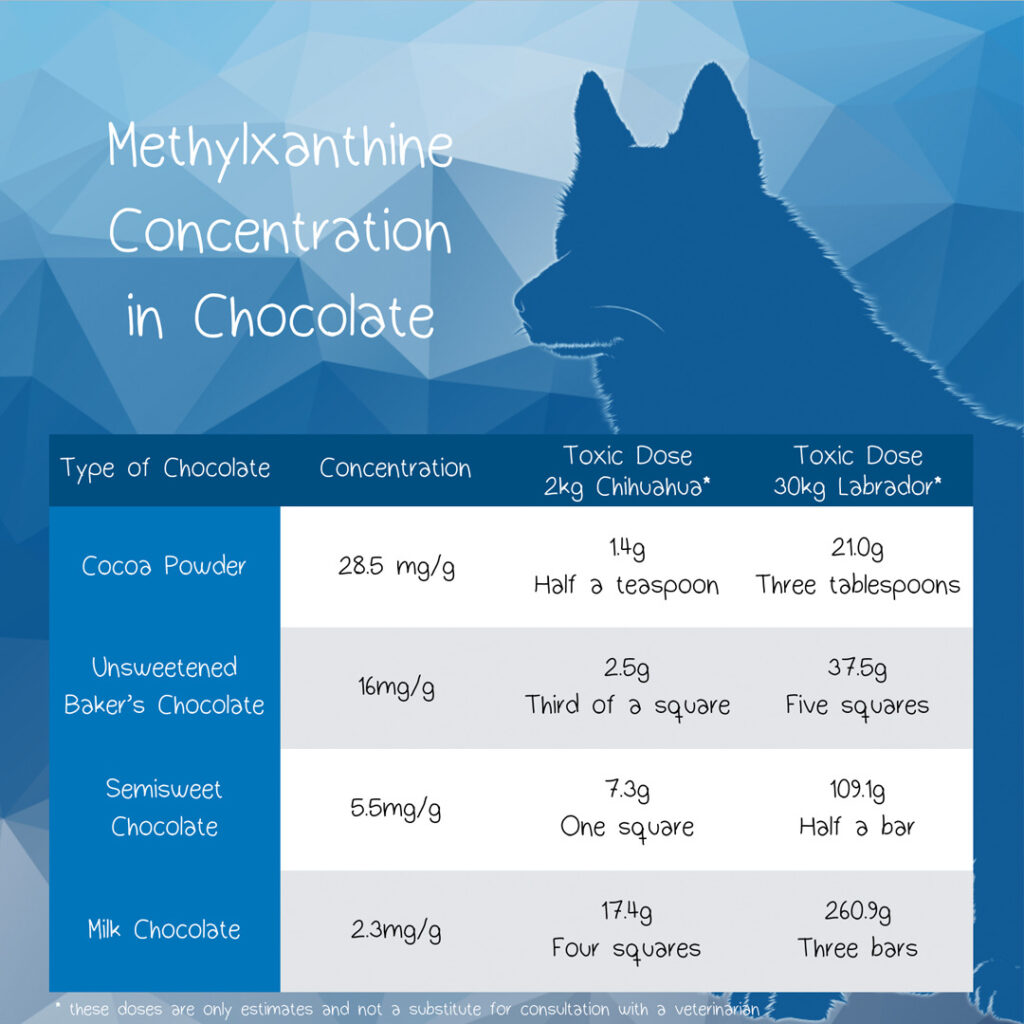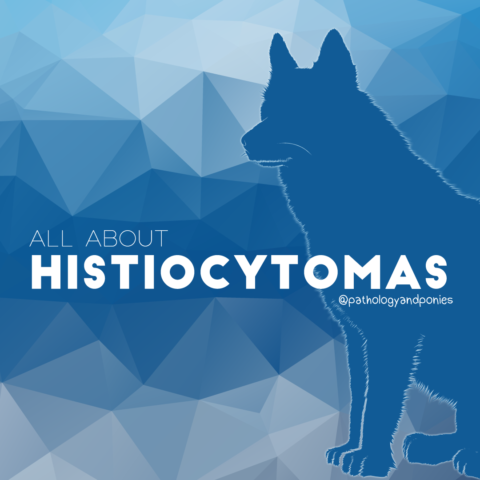
Happy Easter! This week’s posts are going to be themed around toxins commonly seen around the Easter holiday. Today’s path rounds are on 𝐜𝐡𝐨𝐜𝐨𝐥𝐚𝐭𝐞 𝐭𝐨𝐱𝐢𝐜𝐢𝐭𝐲!
𝐖𝐡𝐚𝐭 𝐢𝐬 𝐢𝐭?
What’s Easter without some 𝐜𝐡𝐨𝐜𝐨𝐥𝐚𝐭𝐞? Unfortunately for our pets, this makes this holiday quite dangerous, as chocolate can be quite toxic.
𝐖𝐡𝐨 𝐠𝐞𝐭𝐬 𝐢𝐭?
This toxicity primarily affects dogs, although it can also affect cats and other species.
𝐖𝐡𝐚𝐭 𝐜𝐚𝐮𝐬𝐞𝐬 𝐢𝐭?
Chocolate contains 𝐭𝐡𝐞𝐨𝐛𝐫𝐨𝐦𝐢𝐧𝐞 and 𝐜𝐚𝐟𝐟𝐞𝐢𝐧𝐞, which are both 𝐦𝐞𝐭𝐡𝐲𝐥𝐱𝐚𝐧𝐭𝐡𝐢𝐧𝐞𝐬. These methylxanthines are what is actually toxic to your pet! After the animal eats some chocolate, the methylxanthines are quickly absorbed into the body. The toxins can increase the calcium levels within cells, and block receptors for important signalling molecules. Signs of toxicity can occur with as little as 20mg of methylxanthine per kg of body weight, so keeping your pet away from chocolate is important!
𝐖𝐡𝐲 𝐢𝐬 𝐭𝐡𝐢𝐬 𝐚 𝐩𝐫𝐨𝐛𝐥𝐞𝐦?
Ultimately, the main effect of methylxanthines is stimulation of the nervous system, which can result in 𝐚𝐭𝐚𝐱𝐢𝐚 (wobbly gait), seizures, tremors, and hyperactivity. It can also cause 𝐭𝐚𝐜𝐡𝐲𝐜𝐚𝐫𝐝𝐢𝐚 (fast heart rate), which may be associated with 𝐚𝐫𝐫𝐡𝐲𝐭𝐡𝐦𝐢𝐚𝐬 (irregular heart beats). These heart dysfunctions may prevent adequate distribution of blood to the cells, leading to 𝐜𝐲𝐚𝐧𝐨𝐬𝐢𝐬 (lack of oxygen), 𝐡𝐲𝐩𝐨𝐭𝐞𝐧𝐬𝐢𝐨𝐧 (inadequate blood pressure) or other issues. In severe toxicities, these heart dysfunctions can lead to death.
𝐇𝐨𝐰 𝐢𝐬 𝐢𝐭 𝐝𝐢𝐚𝐠𝐧𝐨𝐬𝐞𝐝?
Diagnosis is typically made based on a history of eating chocolate, combined with the clinical signs. However, if there is no known history of chocolate exposure, diagnosis can become quite challenging!
𝐇𝐨𝐰 𝐢𝐬 𝐢𝐭 𝐭𝐫𝐞𝐚𝐭𝐞𝐝?
The most important aspect of treatment is stabilizing the nervous system effects, often by giving drugs to prevent or treat seizures. If the animal has heart arrhythmias, the type of arrhythmia can be identified on an 𝐞𝐥𝐞𝐜𝐭𝐫𝐨𝐜𝐚𝐫𝐝𝐢𝐨𝐠𝐫𝐚𝐦 to allow for specific treatment. If the animal is stable, the veterinarian may induce vomiting to remove the chocolate, or give a toxin binding medication to prevent further absorption of the toxin.
𝐒𝐨𝐮𝐫𝐜𝐞𝐬
Gwaltney-Brant SM. Chocolate toxicosis in animals. Merck Veterinary Manual 2021.




